AVIVA-Berlin >
Interviews
AVIVA-BERLIN.de im Februar 2026 -
Beitrag vom 27.07.2017
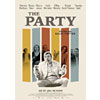
The Party. Written and directed by Sally Potter. The Party premiered at Berlinale 2017. Cinema release in Germany: 26. July 2017. Sally Potter in interview with AVIVA-Berlin
Sharon Adler, Shlomit Lehavi
Sally Potter is not just a brilliant filmmaker and screenwriter ("Orlando", "Ginger and Rosa", Yes", "The Tango Lesson"), but also a performance artist, actress, dancer, theatre director, choreographer, composer and author. In her latest movie "The Party" she deals with politics, betrayal, ideals, love, friendship, and loyalty. With AVIVA-Berlin she talks about the writing process, compassion and WomenôÇs marches
Sally Potter
Sally PotterôÇs life has always been full of interesting and beautiful art projects. At the age of fourteen, Sally Potter, born September 19th 1949 in London, made her first 8mm film. She left school at sixteen to become a filmmaker, joining the London Filmmakers Co-op to make experimental short films. She later trained as a dancer and choreographer at the London School of Contemporary Dance, before founding her own company, The Limited Dance Company. She went on to become an award-winning performance artist and theatre director, with shows including ôÇMountingôÇ, ôÇDeath and the MaidenôÇ and ôÇBerlinôÇ. In addition, she was a member of several music bands working as a lyricist and singer, especially the Feminist Improvising Group (since 1978), where she also played alto saxophone.
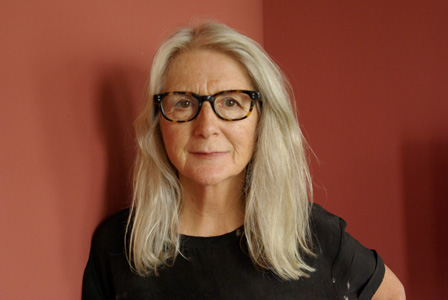
The internationally acclaimed ôÇOrlandoôÇ (1992) brought Sally PotterôÇs work to a wide audience. Starring Tilda Swinton, the film was based on Virginia WoolfôÇs classic novel (adapted for screen by Sally Potter). In addition to two Academy Award nominations, ôÇOrlandoôÇ won more than 25 international awards. ôÇThe Tango LessonôÇ (1997) and ôÇThe Man Who CriedôÇ (2000) were the follow-ups with which she established her name as one of the most successful and risk-taking female filmmakers. Her film ôÇYesôÇ (2005) transcends the political conflict between the West and the Middle-East using the metaphor of the love between an Irish-American woman and a man from Lebanon. ôÇGinger and RosaôÇ (2012) portrays the friendship of two teenage girls in London, 1962.
In her movie making, feminist filmmaker Sally Potter doesnôÇt focus on one genre or theme, all of her films are unique and stand for themselves.
Sally Potter has worked with many of the most exceptional cinema actresses and actors of our time. Her films have won numerous important international awards and received both Academy Award and BAFTA nominations. She has had full career retrospectives of her film and video work at the BFI Southbank, London, MoMA, New York, and the Cinematheque, Madrid. Besides her various tasks she writes and publishes books, such as "Naked Cinema - Working with Actors", which was published by Faber & Faber in 2014. Sally Potter co-founded her production company Adventure Pictures with producer Christopher Sheppard.
The Party - a portrait of "broken England"
Sally Potter started writing the script for The Party just before the last general election in the UK, "at a point where it seemed that the left in the UK was very much losing its ability to be sincerely brave about its policies and was trying to disguise itself as something very centrist, so that left and right were almost indistinguishable," she said at a press conference after the world premiere of her film at the 67. Berlinale, where she was awarded with the "Gilde Filmpreis".
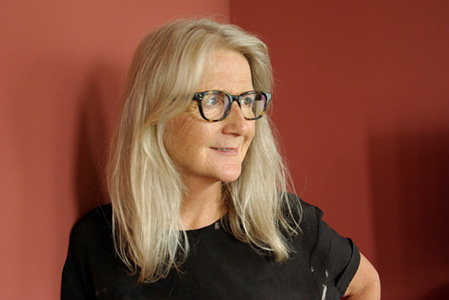
The political comedy relationship drama unfolds in real time in a house in London in the present day. Janet (Kristin Scott Thomas) is hosting an intimate gathering of close long-term friends to celebrate her election to Shadow Minister of Health in the party of opposition. Her husband, Bill (Timothy Spall), is drunk and busy with himself. As their friends arrive one after another, all of them have their own dramatic news to share. As the evening goes on, the party gradually unravels and accumulates by Bill mumbling "I have an announcement". Bill provokes a series of revelations that rapidly escalate into all-out confrontation. As peopleôÇs illusions about themselves and each other go up in smoke, along with the canapes, THE PARTY becomes a night that began with champagne but ends with blood on the floor.
THE PARTY was shot only over two weeks, and after only three days of rehearsals. The black and white movie is extraordinary brilliantly performed by Kristin Scott Thomas, Emily Mortimer, Patricia Clarkson, Cherry Jones, Cillian Murphy, Bruno Ganz and Timothy Spall. The political screwball comedy-drama is both aesthetically beautiful, highly political and extremely funny with its witty and sharp dialogues.
The mix of drama and comedy, the cast, their acting and dialogues, the various layers of emotions and not to forget about the photography and the choice of the music ã THE PARTY is for sure another marvelous Sally Potter movie!
AVIVA-Berlin, Sharon Adler and Shlomit Lehavi, met Sally Potter before the premier of her new movie.
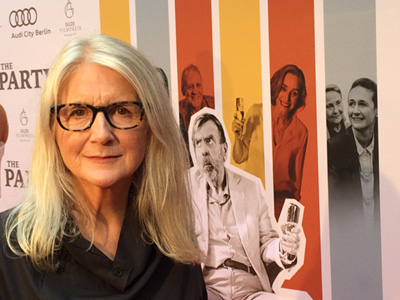
Interview with Sally Potter
AVIVA-Berlin: It feels that betrayal is the main subject of the movie. All the many subject matters that are dealt with in the movie ã politics, ideology, relationship, friendship, love, married life, loyalty, morals - all been somehow contaminated with betrayal of some sort. And yet you show all those very serious almost tragic at times events with a touch of humor.
Do you think that we as society lost our integrity and honesty?
Sally Potter: Not fundamentally. But in the political arena, the context in which I wrote it, there was a risk that truth was disappearing completely. This is before people started talking about the post-truth era. It was around four years ago, that I started writing, so it was clear as the left and the right moved into the center you couldnôÇt tell one from the other and you couldnôÇt really tell what anyone was thinking. People were saying just what they thought they had to say just in order to get a vote. That is the partly political life. In personal life of course, it is also difficult to speak the truth. People often have an image of themselves that they accumulate over a lifetime. I am this kind of person who believes this, that, and the other... and then a crisis comes and they start behaving in a completely different way and then discover that thereôÇs a big gap between their principals and their actual behavior and stuff. So exploring that area was very rich of comic potential, because in fact itôÇs a banana-skin, itôÇs like people walking to that area and ã schimmm ã and fall over. So thatôÇs sort of that interface, I thought of it as IôÇm going explore the politics of health and the ill-health of politics and see where they meet and of course if we are talking about truth and lies then youôÇre definitely also talking about loyalty and betrayal and disappointment and failure and many other things besides. Because everybody is so complex.
AVIVA-Berlin: LetôÇs talk about the Musical choice of "Jerusalem" at the opening of the movie as a "political statement". (Jerusalem, written by William Blake, 1757-1827, became the official hymn of the British "WomenôÇs Institute" in WWI and was sung by the National Union of Suffrage Societies).
Sally Potter: Well, itôÇs the hymn of the left actually. ItôÇs like the alternative national anthem for people who are not nationalists. And itôÇs full of metaphors. ItôÇs quite complicated, using this image of Jerusalem ã "Till we have built Jerusalem, in Englands green and pleasant Land."
I decided to use the musical evocation and not the words. I listened to a lot of recordings of the song which has many that are beautiful. But I decided that it needs to be an instrumental version, so we get the evocation of it without knowing what it is and use the electric guitar, like Jimi Hendrix doing "The Star-Spangled Banner" (the national anthem of the United States of America). ItôÇs kind of an anarchist version of "Jerusalem" for those who recognize it. And if they donôÇt, itôÇs just an interesting piece.
AVIVA-Berlin: In "The Party" Jane (Kristin Scott Thomas) is elected to become the minister of Health. She is a woman who finally made it to the political top, and yet, once she learns that her husband is ill, she is willing to resign, to sacrifice her career and achievement What is your message to women out there?
Sally Potter: Maybe, maybe she is willing to sacrifice her career, we donôÇt know it yet...
But yes, as we know, womenôÇs success comes at a price. The price being that youôÇre accused of not really being womanly ... or somehow you canôÇt be as human if youôÇre a woman and youôÇre successful which doesnôÇt apply to men ... thatôÇs a theme. But also this is an Achilles heel. Everybody has their Achilles heel and that something which breaks them. And in this case this is what breaks her...in that moment...how is she going to survive that moment of breaking. Which then in the end, as so many women seem to end up talking about important things in the bathroom ã teenage girls all go in the bathroom to talk about things and so do older women too.
AVIVA-Berlin: So this is why they all go to the bathroom?
Sally Potter: Yes! They all have their relationship with the bathroom. ItôÇs kind of a private place. ItôÇs a purification place, and itôÇs symbolically important. That is where April tries to get her friend back on track and talk about their disappointments, saying "reallyãÎfinally, for all our sakes, we really need you to keep going, you know, donôÇt give up. YouôÇve done something bigãÎ"
Even though she (April) has been niggling at her the whole evening. Actually, she really loves her friend and really wants to support her friend to keep going and not fall.
Minute to minute she (April) appears to be attacking everybody: "Democracy is finished, babies are born every day", and you know sheôÇs the one who speaks out loud the things that other people think but donôÇt dare saying. But in the end sheôÇs a very good friend.
AVIVA-Berlin: Is she the one who says "If you really lead this country you need to do something about your hair"?
Sally Potter: Yes! I remember reading that Hillary Clinton said that she had no idea that people would be so interested in her HAIRãÎ!
AVIVA-Berlin: In 2005 we, AVIVA, have been asking you as a female and feminist filmmaker: How important is it for you as a female director to see women differently? You said back then: "ItôÇs very clear that women have been under-represented in films for a long time unless the writer has really been taken the time to imagine what it is like to be female or even to imagine what a female could be interested in. ItôÇs important for me to develop interesting female characters. It should be fifty/fifty. We share this world, so letôÇs share the films as well." So, what do you think, has changed since then and what still needs to be done (and how)?
Sally Potter: Well, I think that now thereôÇs quite a few examples of these new television series, brilliantly reckless, in America especially, where there are really really interesting women in the center of the stories. So thatôÇs different. I couldnôÇt have said that back then. In cinema of course the big studios have now noticed that blockbusters might make money even with a woman at the center. So, I think their motivation might be profit but their result maybe is ... interesting.
What elseãÎ? I donôÇt know if there are more female directors than there were then. The rate of growth of female directors is very very slow. Very slow. Actually the last survey I read it was even a little worse. ItôÇs going backwards. ItôÇs a slow process of change.
AVIVA-Berlin: But weôÇre not giving up!
Sally Potter: Of course not!
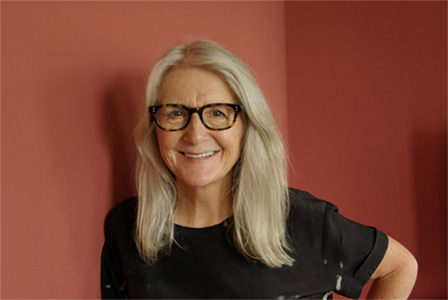
AVIVA-Berlin: Is filmmaking your personal march?
Sally Potter: Well, I was on the WomenôÇs March as well, in the UK, so I think you can make movies and go on marches too, but movies are not just political issues. You know, movies, for me anyway, are much more complex than that and they can never be like an essay. I mean documentary can be, itôÇs a wonderful form but a fiction form is about exploring human complexity. But nevertheless, how extraordinarily complex and contradictory we are and itôÇs also about exploring things that are outside language. Sound, music, the image, and all the craft issues that in fact obsess me when IôÇm making a film. All these other issues weôÇve been talking about, thatôÇs in the writing and then working with actors, but minute to minute IôÇm thinking: which lens to use? Should this light be more? Should this sound be here? You know, itôÇs craft. So, the total aesthetic experience is so shaped that it becomes a world into which people can fall, believe, living, having experiences.
AVIVA-Berlin: Like "Ginger & Rosa" "The Party" also deals with ideology and betrayal though in The Party we also feel disillusion, self-criticism and bitterness. Was Ginger & Rosa a reference for you to The Party? Was this something that you are concerned about? The change in idealism in current days? Did we fail?
Sally Potter: Like all filmmakers I have the illusion that every film is completely different than the last. That this is totally new territory. I have amnesia about what IôÇve done before, but of course there is some thematic things. Here I was thinking about Greek tragedy. I was thinking what is the modern day Greek tragedy, because of course you know, people killing each other, blinding and betraying and you know all that, this is the stuff of the real long roots of drama of the really uncomfortable areas, and extreme consequences in human relationships and interactions. But I also wanted to do it in a brutally honest way I could say but fueled by extreme love and compassion for all these individuals. Not one of them is all bad, all good. TheyôÇre just struggling. TheyôÇre struggling to do what they think is right and what they believe and then theyôÇre just falling over ... all over the place.
AVIVA-Berlin: You have been writing poems since you were a little girl, as well as lyrics (esp. in the "The Feminist Improvising Group", where you not only sang but played alto saxophone as well). For "YES" you wrote long parts of the speech in iambic pentameters, which sound very beautiful, very poetic for film dialogues. For "ORLANDO" you adapted Virginia WoolfôÇs classic novel for screen and the dialogues for "The Party" that you wrote are highly sharp, and witty. Please tell us more about your writing process for "The Party".
Sally Potter: First of all...you know, if I probably added up the number of hours I spent on different parts of filmmaking the most hours would be spent writing. Because I write all my own scripts and IôÇve written many other scripts, that I havenôÇt yet filmed, and IôÇve written a book, and I write stories. So each script I usually start by writing it as a short story and that really helps because itôÇs not technical, it just flows. And so I find out through writing the story what itôÇs about. Who are the people that are in it, in this world which kind of emerges somehow miraculously. I donôÇt understand how, but it does. And then with dialogue I think the clue to writing dialogue is first of all you have to know what people are not saying. What theyôÇre really thinking and feeling inside. So a short story form is fairly good for that because you can write about that. Then the consequences of what they donôÇt say leads them to say stuff and then how what they say is just about listening all the time to people everywhere, you know. I do a lot of listening and then itôÇs like you can hear them, what they say. I donôÇt know how else to express it other than that. Then there is a process of editing, suggestions from actors to change this and that.
But here there were almost no changes made. I went back, just out of interest before I came here, and looked at the very very very first outline I did, the first story I did. I started reading itãÎitôÇs word for word the same. The endingôÇs changed. Some things changed. But the dialogues are there in its entirety. So, I donôÇt know how these things happen, actually itôÇs rather mysterious. I think itôÇs kind of listening actually, rather than inventing.
AVIVA-Berlin: We would like to talk about the camera, as we love the close-ups. They are wonderful, and create a form of intense intimacy, which evokes the feeling of being in a theatre, it feels more like staging than watching a movie. Can you please tell us about your decision for filming black and white, using a hand camera, and the long, 10 minutes takes?
Sally Potter: Interesting. I wrote it as a film. I thought of it as completely cinematic but of course IôÇm using things that are traditionally sort of the province of theatre language. For me language and cinema are a wonderful mix. I was watching the screwball comedies from the 40s with Katharine Hepburn and Spencer Tracy. That period of Hollywood film I guess had brilliant writers. People said brilliant things. And then it kind of degraded into the so-called naturalism, realism where people said: "ah yeah hm I donôÇt knowãÎIôÇm not really ãÎ" Language was not used as a tool. But itôÇs not just the province of theatre, you know, thatôÇs the thing. And then I wanted to create this confinement of space and time, which of course is moreãÎyouôÇre right, more associated with a play but actually there is a tradition of cinema where you create confinement made for something very explosive. And then cinematically, Aleksei Rodionov is just a wonderful Russian cinematographer who of course I worked with on "Orlando", and whoôÇs looking with a very cinematic eye at these people and the spaces theyôÇre in. So, I thought of it as cinematic. But there has been a lot of interest for maybe making it as a play. Because indeed the characters are rich, they say interesting things and it moves a fast pace, and itôÇs funny, I can see that.
AVIVA-Berlin: "The Party" portrays the older generation as political and idealistic, whereas those who represent the younger generation (the young lesbian who wants to be pregnant at any cost despite her girlfriendôÇs reservation/fears, the banker who sees his wife betrayal as a narcissistic failure - "I never lose" - which is a very self absorbed/ capitalistic point of view. Do you feel that the younger generation today is more self-absorbed and have less ideals and this resulted in the Brexit?
Sally Potter: I think it was more individual, because they are in a different stage in their live. ThereôÇs two characters. And the other ones are mature. TheyôÇve lived, theyôÇve been hugged, they were wounded, they are struggling. But now I must say, there is the much younger generation, people in their teens, in their early twenties are so interesting nowãÎall of these young people that I knowãÎwonderful! And theyôÇre doing such interesting things, in such interesting ways. So I donôÇt think theyôÇre more selfish. I think there was an in between-generation in the UK that was in a way taught to be more selfish, to think about themselves. But thatôÇs changed.
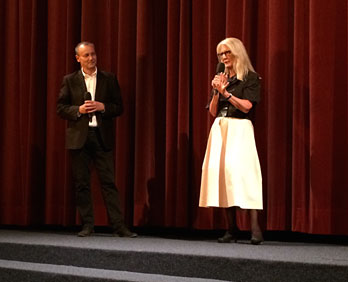
AVIVA-Berlin: Sally Potter, we wish you every success. Thank you very much for taking time out of your brief stay in Berlin to interview you.
More info about Sally Potter at:
www.sallypotter.com
The Party
GB 2017
Directed, written by Sally Potter: Sally Potter
Camera (B&W, widescreen): Alexey Rodionov
Editors: Anders Refn, Emilie Orsini
Crew: Patricia Clarkson, Kristin Scott Thomas, Bruno Ganz, Timothy Spall, Cillian Murphy, Emily Mortimer, Cherry Jones
FSK: 12
Producer: Christopher Sheppard, Kurban Kassam
Executive Producer: Robert Halmi Jr, Jim Reeve, John Giwa-Amu
Runtime: 71 minutes
Cinema release: 27.07.2017
More info at: www.theparty-derfilm.de and www.facebook.com/TheParty.DerFilm
Read more at AVIVA-Berlin at:
Ginger & Rosa. Ein Film von Sally Potter. Ab 12. September 2013 auf DVD
London, 1962. Zwischen Kubakrise und wilden PartynûÊchten beginnen zwei unangepasste Teenager ihren Feldzug gegen Krieg und Konventionen - bis der Kampf sein erstes Opfer fordert: Ihre Freundschaft. Mit Annette Bening und Elle Fanning. (2013)
Tango Lesson von und mit Sally Potter
Der 1997 erschienene Film mit Sally Potter und Pablo Veron in den Hauptrollen erscheint nun endlich auf DVD. Die ZuschauerInnen dû¥rfen sich auf Perfektion in Tanz- und Filmkunst freuen. (2008)
Sally Potter in interview with AVIVA-Berlin
While in Berlin at the German premier of her new film, ôÇYesôÇ, AVIVA took the chance to talk to the successful director about film-making and cultural differences. (2005)
Yes
Eine crosskulturelle Liebe, leidenschaftlich und existenzerschû¥tternd. Irisch-amerikanische Biologin trifft auf libanesischen Arzt. Von Sally Potter, der Meisterin der malerisch-epischen ErzûÊhlung (2005)
Read more:
Sally Potter: ôÇThe Party is the opposite of BrexitôÇ: www.theguardian.com
Copyright Fotos von Sally Potter: Sharon Adler
Special thanks:
Transcription: Tina Schreck
Vavi Toran and Zehava Dahan for the thought provoking discussion about the movie